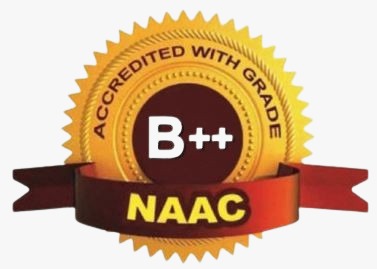Grievance Redressal Committee
Objectives
- The Grievance Redressal Committee plays a vital role in bridging the gap between our institution and the industry. Its primary function is to understand industry trends and expectations, preparing students to meet current requirements through internships in renowned architectural firms and organizing various training programs such as seminars, workshops, and expert talks by practicing architects. By effectively fulfilling its role, the Industry Institute Partnership Cell (IIPC) at SINCET significantly contributes to our overarching vision and helps mitigate criticisms by addressing any shortcomings.
- In our college, the Grievance Redressal mechanism aims to ensure fairness, resolve issues, maintain a positive atmosphere, and enhance student satisfaction. It emphasizes transparency, continual improvement, adherence to regulations, confidentiality, and proactive measures to prevent future grievances. Moreover, it aligns with the college's educational goals and fosters growth and development.
Procedure
- Receiving Complaints: This function establishes a clear pathway for both students and staff to submit complaints, ensuring that grievances are documented and promptly addressed.
- Establishing a Complaint Handling System: Implementing a structured system for managing complaints is vital for addressing issues in a consistent and organized manner
- Forwarding Results to Management: It's essential to keep the management informed of the outcomes and actions taken in response to complaints, particularly for issues requiring higher-level intervention or systemic changes.
- Listening, Recording, and Investigating Promptly: Demonstrating responsiveness and thoroughness in addressing grievances underscores the organization's commitment to taking complaints seriously.
- Prioritizing Grievances: By prioritizing grievances based on their authenticity and severity, the organization can efficiently allocate resources and address the most pressing concerns first.
- Forwarding Grievances to Relevant Departments: Directing grievances to the appropriate departments ensures that experts and decision-makers are involved in resolving specific issues.
- Organizing Regular Meetings: Regular meetings to review the status of grievance resolutions are essential for monitoring progress and ensuring that issues remain a priority.
- Conducting Regular Follow-ups: Persistent follow-up on complaints until they are fully resolved demonstrates the organization's dedication to achieving satisfactory outcomes for complainants
- Maintaining Confidentiality: Upholding the confidentiality of grievances, especially in sensitive matters, is crucial for safeguarding the privacy and trust of those lodging complaints.
| S.NO. | NAME OF THE COMMITTEE MEMBER | PROFESSION | ASSOCIATED WITH | MOBILE NUMBER |
|---|---|---|---|---|
| 01 | Dr. A. KUMARAVADIVEL | Principal | CHAIRMAN | 9443850603 |
| 02 | Mr. P. MALAISELVARAJA | HoD – Mechanical | Secretary | 8508877314 |
| 03 | Mrs. J. SIVASANKARI | HOD - Science & Humanities | Member | 9843697693 |
| 04 | Mr.P. NAVANEETHAKRISHNAN | HoD - ECE | Member | 8508877326 |
| 05 | MR.N. RAGUVARAN | HoD - EEE | Member | 9003303896 |
| 06 | Dr. G. GIFTSON SAMUEL | Research Director | Member | 9443120840 |

